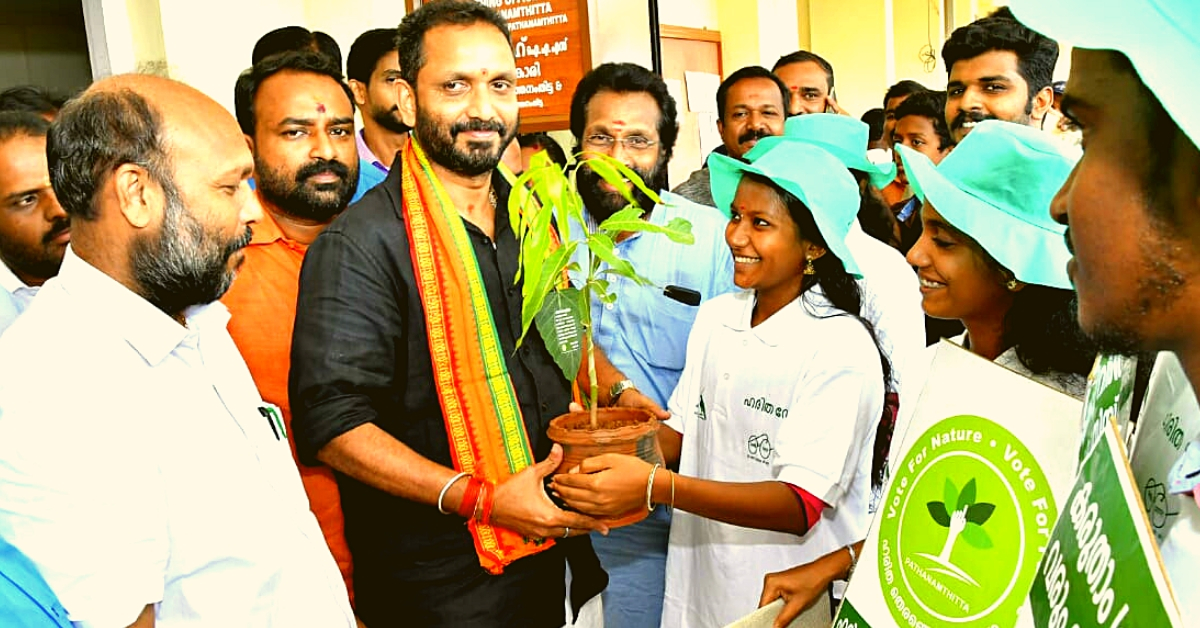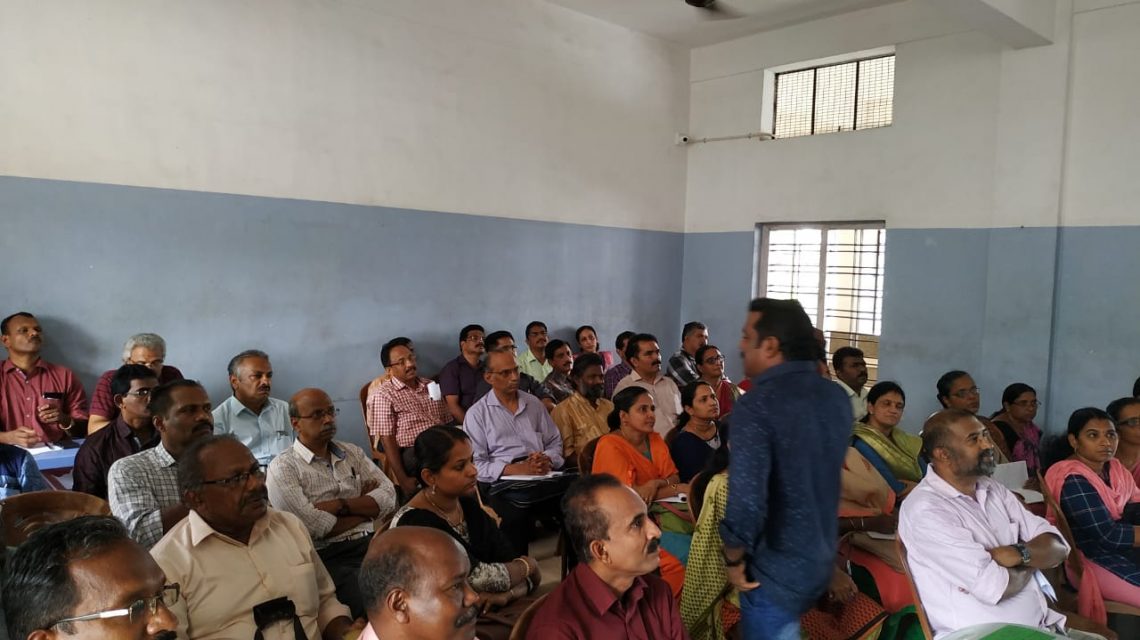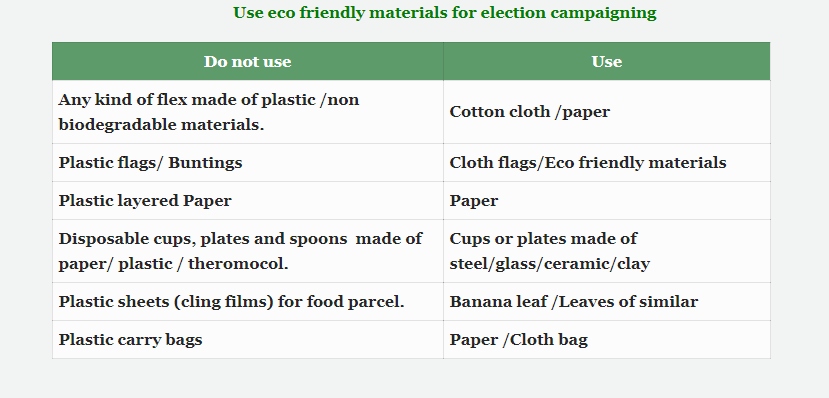Kerala Districts Set Example, Go The Extra Mile To Ensure Eco-Friendly Elections!
From making flags out of recycled paper to replacing plastic with steel bottles, Kerala is blazing a green trail in India’s largest exercise in democracy!

Based on a directive from the Central Election Commission, which stated that elections must be conducted in an environment-friendly manner, all 14 districts in Kerala, alongside Haritha Keralam Mission and Suchitwa Mission, have issued guidelines.
While the Haritha Keralam Mission is a state-backed umbrella mission aimed at waste management, organic farming, water resources management, the Suchitwa Mission is responsible for providing technical and managerial support for waste management to the local self-government.
As per the ECI directive, all parties and candidates must refrain from using single-use plastic material for their campaigns. They have been directed not to use PVC flex boards, and instead use boards, banners and posters made of cloth.
At the booth level, authorities have asked candidates to serve food in steel plates or plantain leaves, besides serving water from earthen pots in steel glasses.
Parties have been asked to make flags out of recycled paper. This green protocol is aimed at reducing waste generation and the use of non-biodegradable material.

“When the ECI issued this directive, I wrote a letter to the Chief Electoral Officer of Kerala, asking him to take it seriously and inquiring whether election officers and district administration would lead the charge in ensuring the green protocol is observed. They responded to my proposal very positively,” R Ajaykumar Verma tells The Better India. He is the executive director of the Suchitwa Mission.
Through awareness programmes, various district administrations have persuaded candidates to desist using PVC flex boards and other plastic materials. In Thiruvananthapuram, the local District Collector met with candidates from all political parties to lay out the green protocol.
“Facilitation centres have been set up at the district, block, taluk, and panchayat levels, so the candidates are persuaded against violating the rules of the green protocol. These centres train assistant returning officers (AROs) and others involved in the election process including local activists. They are also conducting IEC (Information, Education and Communication) sessions on why flex should not be used, what the alternative materials are, how they should reduce the generation of waste, and how waste can be reduced in the polling booths and stations, besides other measures,” says Verma.
Meanwhile, speaking to The Hindu, Jai P Bal, said, “Political parties remove campaign materials that are found to have violated the green protocol as soon as block-level nodal officers take their photographs and report it over the mobile app cVigil”. He is the Suchitwa Mission coordinator, and district nodal officer for the green protocol in Ernakulam district.

Assisting authorities on the ground to implement the protocol during the upcoming elections is the recent Kerala High Court order banning the use of PVC flex boards and other non-biodegradable material. This has brought back the sticking of posters and wall graffiti in a major way.
“Besides flex boards, parties use a lot of plastic material in arranging polling booths and the welcome extravaganza for candidates. In fact, the Haritha Keralam Mission has prepared an entire handbook in Malayalam for all stakeholders,” informs another official of the Haritha Keralam Mission, who did not wish to be named.
He continues, “However, different districts have used different tools to educate candidates. In Pathanamthitta district, whenever candidates file their nominations, the collector gives them a letter stating how he/she must be a green MP, stop single-use plastic, reduce waste generation and promote green protocol, among other suggestions. They also receive a bag with a steel bottle as opposed to plastic, and an ink pen so that empty plastic refills aren’t thrown, along with cloth bags. In other districts, pro-green rallies are organised, and students speak to candidates to raise awareness.”
Meanwhile, in the Ernakulam district unit of the Suchitwa Mission, revenues officials and local government bodies who set up the best polling booths in compliance with the green protocol and dispose of campaign materials in the best manner will receive an award.

This is the first time Kerala is implementing a green protocol in the elections. With the poll process just starting, officials have found that there isn’t much use of plastic, unlike earlier.
“We don’t find PVC flex boards anymore, but if they are used, the district administration is removing them. Overall, people are aware that we are going eco-friendly and must not use material that can pollute the environment. Waste generated in a normal electoral process will be considerably reduced. All district magistrates are leading the way in adopting these measures in a big way,” says Verma, confidently.
Also Read: How Can India Rid Our Politics of Money, Muscle Power? Here Are Some Answers
Assisting candidates and party workers on the ground is Kudumbashree, by providing them with steel plates and glasses on rent. Moreover, after the polls, authorities are expected to conduct a massive clean-up exercise where paper waste will be recycled.
In India’s largest exercise in democracy, Kerala is leading the way for the environment.
(Edited by Shruti Singhal)
Like this story? Or have something to share?
Write to us: [email protected], or connect with us on Facebook and Twitter.
If you found our stories insightful, informative, or even just enjoyable, we invite you to consider making a voluntary payment to support the work we do at The Better India. Your contribution helps us continue producing quality content that educates, inspires, and drives positive change.
Choose one of the payment options below for your contribution-
By paying for the stories you value, you directly contribute to sustaining our efforts focused on making a difference in the world. Together, let’s ensure that impactful stories continue to be told and shared, enriching lives and communities alike.
Thank you for your support. Here are some frequently asked questions you might find helpful to know why you are contributing?


This story made me
-
97
-
121
-
89
-
167











